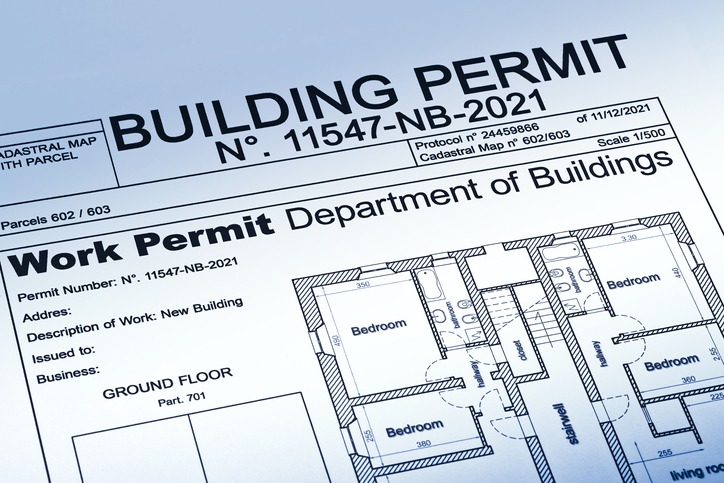Whether you’re working on kitchen renovations or adding a secondary suite on your property, if you build a home addition without a building permit, the consequences could be severe.
Sometimes people think they can get away with it because their municipality doesn’t send an inspector to their house right away. However, this is not true! Inspectors routinely drive by properties in their jurisdiction twice a month. Sooner or later, you will be caught – and if there are problems with your addition when the inspector comes around once again, the penalty will be much greater than having to go through the permitting process from scratch later on. There could even be criminal charges involved depending on what kind of code violations were found when your “simple” little project was finished up and inspected for safety and code compliance.
What do you think would happen if a building inspector came by and saw that your project was not what you had described it as? What if they found out that you started building without permission – no matter how well things were hidden away inside the walls of the addition? Would life be easy for you then, or tough?
Conducting kitchen renovations or other types of addition in your home without a permit can attract hefty penalties. Most major renovations for your home will require a license. If you don’t search for the relevant permits for your home, local authorities can charge you with hefty fines.
The Consequences
Back To The Beginning
You will have to tear down the entire addition because the work done so far is illegal. This will mean spending even more money than before. Plus, you’ll need to deal with necessary permits, inspections, and possible structural changes that may be necessary now that work has begun on this unpermitted structure. This can become very expensive. The best course of action is to apply for the proper permits before starting any work.
Certificate of Occupancy
You will also need to obtain a Certificate of Occupancy (C of O) once all inspections are completed, which may include electrical, plumbing, and other types of inspections. Your project can be delayed even longer if you fail to meet this critical step before using your new addition. Plus, the process itself can cost over $1,000 in some areas – not including additional land use fees that may apply due to zoning regulations in certain jurisdictions. You may have to pay these fees twice since they do add up quickly! The best course of action? Get the building permit first! Then start working on your project with the help of a qualified contractor.
City Penalties
You will also incur hefty penalties for building a home without acquiring the necessary permit. Also, the insurance company will not compensate you if you build your house without having all the required permits.
Safety Risks
A permit exists for a reason and, in most instances, ensures that the house’s renovation is being done accurately and safely. Projects such as kitchen renovations can jeopardize your safety and those of the occupants. Thus it would be best if you had your home inspected to ensure it is compliant and safe.
Problems When Selling Your Home
If you plan to resell your home in the future, it is paramount to have a permit. In the process of reselling a home, the local authority will require you to have a certificate of occupancy. The local authority will inspect your home to determine if it is suitable to be occupied to obtain the certificate. If they note you conducted a significant house renovation without consulting them, you may incur hefty fines. Even if you somehow manage to escape the long arm of the law, if you sell your home without disclosing any unpermitted renovations, the buyer can sue you for damages if poor construction jeopardizes their safety.
At the end of the day, it is simply not worth trying to work around or behind the system. Do everything you can to keep the construction above board before you begin working on your next home improvement project that requires a building permit. It’s not only important for your safety and the safety of all the occupants, but if you get caught without a permit, you could end up facing some very serious consequences.

